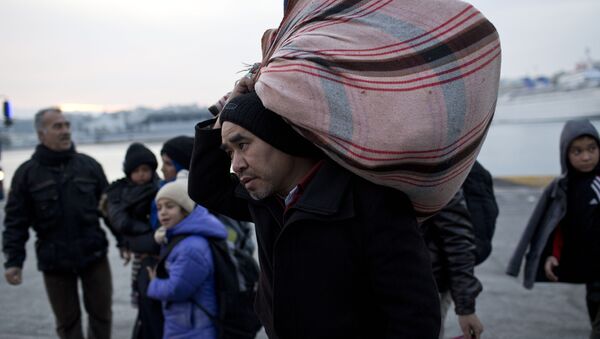MOSCOW (Sputnik) — Switzerland will hold a binding referendum on February 28 on whether convicted foreign residents should face automatic deportation, with the crimes in question ranging from breaking the speed limit to murder.
“The initiative proposal will lead to situations where the expulsion of an alien might and will violate the European Convention on Human Rights as well as the Agreement between Switzerland and the EU concerning free movement of persons,” Andreas Auer, a professor of Public Law at the University of Zurich, told Sputnik.
According to Auer, Switzerland will certainly be condemned in Strasbourg for violating its obligations and the European Union might well take retaliatory measures. Switzerland will be isolated both economically and politically, while the human rights of the expelled foreigners will be violated.
“If as it goes the courts are required to expel any foreign person who has been convicted of certain crimes, without taking into consideration the personal, professional and family situation of the convicted person, the rule of law has gone,” he stressed.
Similarly, Stephane Garelli, who is a professor of world competitiveness at the IMD Business School at the University of Lausanne, Switzerland, explains that should the law be adopted, a hypothetical scenario of Switzerland’s possible withdrawal from the Convention of Human Rights would be absurd, especially because Switzerland has a very prominent international image in relation to human rights, as well as being home to the Red Cross. Such a result could cause public upheaval.
Garelli expressed the view that the vast the majority of the Swiss population considers the initiative unacceptable.
“My feeling is that it’s going to be a rejection. Actually, it’s one of the very few times where almost every party except one is against it”, Garelli said.
“I think so far already we have one of the largest turnouts, because people can vote in advance, and a lot of people are already voting which means there is a lot of concern about this initiative” the expert added.
In turning to the contested issue of “Secundos” or Swiss-born children of immigrants who would also fall under this proposed law, Auer asserted that, “this is a scandal because young persons who have never been in the home country of their parents, living in Switzerland all their life, may be expelled for some minor misdemeanours without appeal.” Garelli emphasized that this point is likely to cause the strongest opposition among the general public. “These Swiss children should have the possibility to be Swiss if they wish,” Garelli stressed.
Finally, when looking at the overall EU anti-migration tendencies that have been more vividly changing the political landscape, Stephane Garelli reiterated, “I suspect that if the same system of initiative or referendum would exist in other countries we would have many such rotations everywhere. We would have them in England, we would have them in the Netherlands, and we even would have them in Denmark and Sweden now.”
According to a recent SBC Poll conducted by the Gfs Institute involving more than 1,400 citizens from Switzerland, 49 percent of those surveyed were against the initiative to deport convicted foreigners, while 46 said they would support the proposal.


